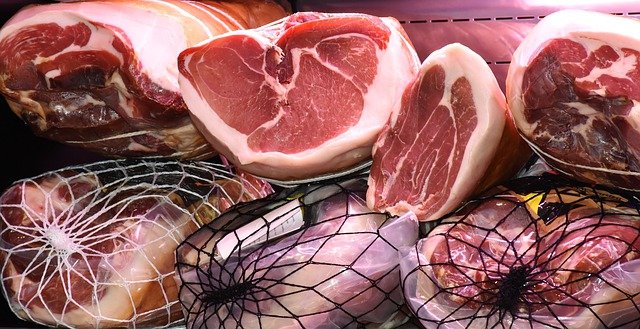-
The Department of Agriculture (DA) has created a special committee to look into allegations of corruption in the allocation of meat import certificates under the in-quota minimum access volume (MAV) scheme
-
The creation of the special committee comes after allegations by a lawmaker that a syndicate in the DA is engaged in a payoff scheme
-
The committee is headed by DA’s legal service chief and will base its inquiry on the initial findings of DA’s MAV Secretariat
-
According to the MAV Secretariat, there are no disparities between the allocations of the current MAV licensees and those given prior to the current DA administration
The Department of Agriculture (DA) has created a special committee to look into allegations of corruption in the allocation of meat import certificates under the in-quota minimum access volume (MAV) scheme.
“While we stand firm that the issuance of MAV in-quota allocation is above-board and non-discretionary, we have created a special committee to look into allegations made by a lawmaker that there is a syndicate in the DA engaged in a payoff scheme,” Agriculture Secretary William Dar said in a statement.
The MAV refers to the volume of quantity of a specific agricultural commodity that may be imported with a lower tariff.
The committee is headed by DA’s legal service chief and will base its inquiry on the initial findings of DA’s MAV Secretariat.
According to the secretariat, corruption in relation to getting a MAV import certificate is remote as the existing licensees are the same ones every year and had previously been accredited by the past DA administrations.
Further, there are no disparities between the allocations of the current MAV licensees and those given prior to the current DA administration, the MAV Secretariat said in its report to Dar.
“We would like to emphasize that our objective in increasing the MAV and reducing tariff is to stabilize supply and price of pork,” the DA chief said.
Under the MAV scheme, DA issues a MAV Import Certificate to licensees that may avail of part of the annual in-quota allocation of 54,000 metric tons (MT) and pay a tariff of 30%. Firms wanting to import beyond the MAV volume, called as out-quota, will have to pay a higher tariff of 40%.
The MAV Secretariat imposes penalties on licensees that were not able to utilize 70% of their allocation for the year. The unused volume is recalled and deducted from the licensee and will be raffled off to qualified applicants.
In addition to securing a MAV import certificate, licensees need to seek sanitary and phytosanitary import clearance from the DA’s Bureau of Animal Industry to ensure that the pork or other meat products are safe, hygienic, and disease-free and do not compromise public health and safety.
DA said it does not allow imports of meat and processed meat products from countries with existing major animal diseases.
Senator Panfilo Lacson earlier pushed for a Senate investigation into the activities of an alleged syndicate within the DA that stands to gain billions of pesos in “tong-pats” (padded costs) from the recommendation to increase the MAV and lower tariff rates on imported pork. The MAV hike and tariff reduction were suggested to address the severe impact of African Swine Fever (ASF) on the local hog industry.
Lacson on March 17 recommended convening the Senate into the Committee of the Whole and has also filed a resolution seeking the investigation in aid of legislation to revisit Republic Act No. 10611, or the Food Security Act of 2013, to address possible loopholes that are being exploited.
DA earlier said the President has “in principle” approved the increase in MAV for pork to allow more imports of the commodity and help address supply and price issues in the Philippines.
READ: Duterte oks ‘in principle’ more pork imports; hog raisers get transport subsidy
The National Economic and Development Authority Board Committee on Tariff and Related Matters has also endorsed the proposed increase in MAV for pork and the temporary decrease in the most favored nation (MFN) tariff rates of pork and rice.
The Philippine Association of Meat Processors, Inc. also earlier suggested zero tariff for pork imports to help stabilize prices.
Samahang Industriya ng Agrikultura executive director Jayson Cainglet, however, said reducing tariff on pork imports would only help importers.
The Agricultural Sector Alliance of the Philippines (AGAP) party list also expressed concern that DA’s proposal to increase pork meat importation by expanding the MAV while imposing a reduced tariff may kill the local industry.
AGAP president Nicanor Briones said that while they are not against importation, 400,000 MT in meat imports is too much and may cause an oversupply nationwide, while cutting tariff rates may cost the government some P13.95 billion in revenues. This, he said, was “unnecessary and unacceptable.”
ASF, which first broke out in the country in 2019, has disrupted the operations of hog growers in Luzon, prompting the need for supply to be shipped in from Visayas and Mindanao.
The Philippine government earlier placed a 60-day price cap on pork and chicken products in Metro Manila to contain rising prices.





